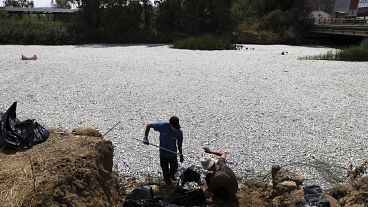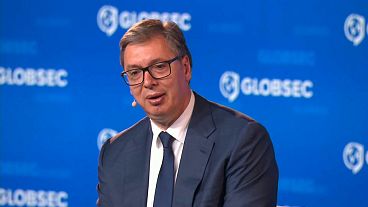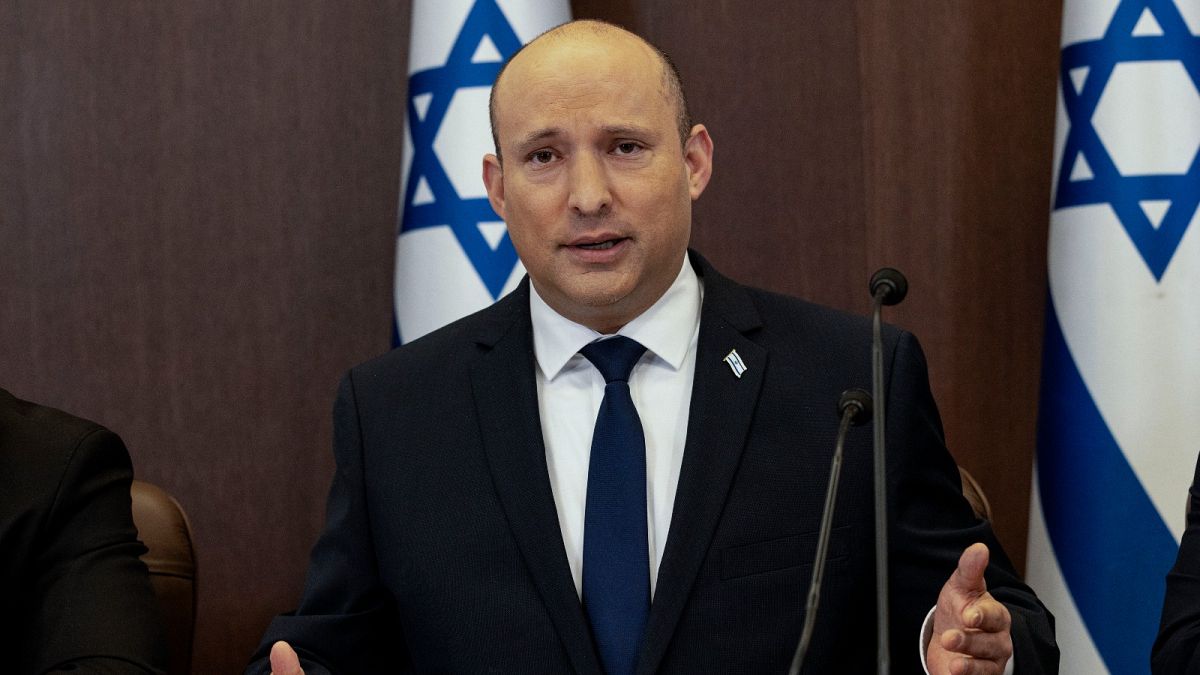Israeli Prime Minister Naftali Bennett said he would travel to the United Arab Emirates, the first visit by an Israeli premier.
Israeli Prime Minister Naftali Bennett said he would travel to the United Arab Emirates on Sunday, the first visit by an Israeli premier, as part of a blitz of regional diplomacy amid the backdrop of struggling nuclear talks with Iran.
Israel has watched with concern as Iran has pushed a hard line against negotiators meeting in Vienna, at once demanding sanctions relief while accelerating its nuclear program. In recent weeks, Israel has fanned out its top diplomat and its defence and spy chiefs to meet allies in Europe, the US and the Mideast to push for a firmer approach to Iran.
Bennett’s one-day trip to Abu Dhabi, where he will meet with Crown Prince Mohamed bin Zayed, is a milestone for both Israel and its new leader. Israel and the UAE last year signed a normalisation deal brokered by the Trump administration under the so-called Abraham Accords, which saw similar agreements penned with Bahrain, Sudan and Morocco. Israel and the UAE have long shared common anxiety over Iran’s nuclear program. The deal to establish ties between the countries only increased tensions with the Islamic Republic.
Bennett’s office said he will be discussing “economic and regional issues that will contribute to prosperity, welfare and strengthening stability between the countries" during his meeting with bin Zayed.
Bennett’s trip comes on the heels of a visit by the UAE’s national security adviser Sheikh Tahnoon bin Zayed Al Nahyan to Tehran, where he met with Iran’s new hard-line president, Ebrahim Raisi in a bid to ease tensions. It was a major visit for the Gulf Arab federation that has long viewed Iran as its main regional threat. Several other regional political visits, by Syria’s foreign minister and the leaders of Saudi Arabia and Turkey, have also taken place recently, all with an eye on the negotiations.
Israel, which is not a party to the talks in Vienna, has turned to its allies to work together and lobby negotiators seeking to rein in Iran’s nuclear program. Foreign Minister Yair Lapid recently visited Europe and Egypt and Defence Minister Benny Gantz and Mossad chief David Barnea flew to the U.S. to discuss the talks with leaders there.
Earlier this year Lapid visited the UAE and inaugurated Israel's embassy there, a trip seen as further cementing bilateral ties.
Israel sees the UAE as a crucial part of that outreach. Under Sheikh Mohammed bin Zayed Al Nahyan, Abu Dhabi’s powerful crown prince and long the de facto ruler of the Emirates, the UAE has embarked on a rapid expansion of its military forces to counter what they see as the threat posed by Iran. The Emirates also hosts U.S. and French forces and its Jebel Ali port is the U.S. Navy’s busiest port of call outside of America.
The Vienna negotiations are working to revive the 2015 nuclear accord between Iran and six world powers. That agreement, launched by President Barack Obama, granted Iran relief from stifling sanctions in exchange for curbs on its nuclear program.
But three years later, President Donald Trump, with strong encouragement from then-Israeli Prime Minister Benjamin Netanyahu, withdrew from the deal, causing it to unravel. Since then, the U.S. has reimposed sanctions and Iran has stepped up its nuclear activities -- amassing a stockpile of highly enriched uranium that goes well beyond the bounds of the accord. Prominent voices in Israel, including a former defence minister and former intelligence head, are now indicating the U.S. withdrawal, especially without a contingency plan for Iran’s continuously developing nuclear plan, was mishandled.
Talks resumed earlier this month in Vienna after a five-month hiatus that came following Raisi’s election. But negotiators ended the round disappointed, claiming Iran had backtracked on progress made in previous rounds and had dug in with new demands on sanctions relief. Iran also isn’t slowing down advances in its atomic program, further raising the stakes in talks. In the midst of the negotiations, the U.N.’s nuclear watchdog confirmed that Iran had begun enriching uranium up to 20% purity at its underground facility at Fordo – a site where enrichment is not permitted under the deal.
Israel considers Iran to be its greatest enemy and it strongly opposed the 2015 deal. It says it wants an improved deal that places tighter restrictions on Iran’s nuclear program and addresses Iran’s long-range missile program and its support for hostile proxies along Israel’s borders. Israel also says that the negotiations must be accompanied by a “credible” military threat to ensure that Iran does not delay indefinitely.
Iran says its nuclear programme is meant for peaceful purposes.
If successful, Bennett’s visit to the UAE could give him a boost at home at a time when he is under fire for a recent trip by his family abroad amid COVID travel restrictions and when the legitimacy of his leadership is still being questioned by opposition lawmakers and the voters who support them.
Bennett, who leads a small nationalist party in parliament, rose to the prime minister post following a deal concocted by a panoply of political factions working to oust Netanyahu, a long-serving leader who portrayed himself as the ultimate statesman and defender of Israel.












